|
MICE, RATS, HAMSTERS, GERBILS
Rodents are true pocket pets that do not take up much room and are easy and inexpensive to acquire and care for. In my opinion, out of all the various small rodents, rats tend to make the best pets. They will become very tame and friendly and will interact with the family. Hamsters are popular pets, are cute and fuzzy, but do have more of a tendency to bite then some of the other rodents. Mice also make good pets but tend to be a little more active and then rats. Gerbils generally are very tame and sweet and typically are not bitters, but again are very active and must be socialized well to be a good pet. The primary drawback with all our small rodents species is their limited life span, with a 2yr old often considered an old rodent.
RATS:

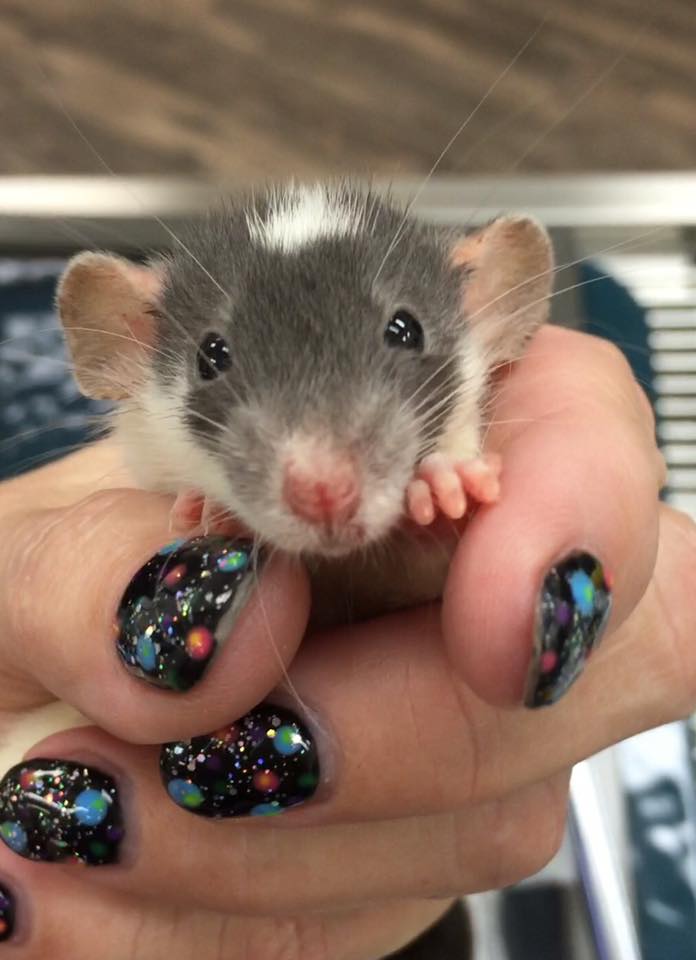 |
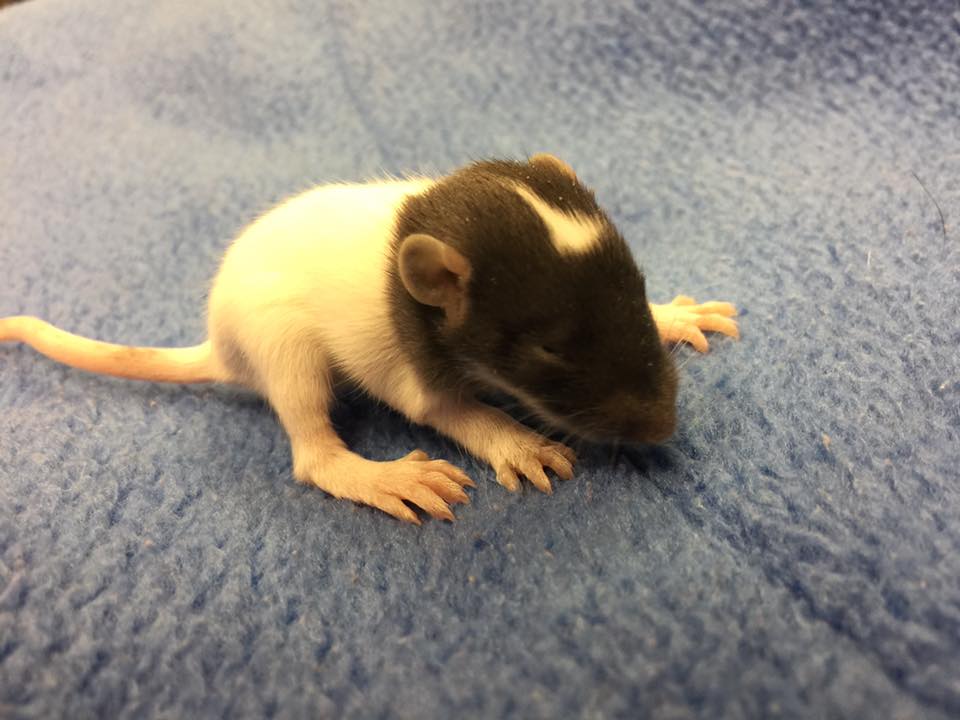 As with all pets, many health problems can potentially develop. However, a couple of the more common problems in rats are upper respiratory infections and mammary gland tumors. Respiratory infections are contagious among rats and the ill pet will often exhibit tearing (often red tears), nasal discharge and sneezing. If caught early the infection can be treated by your veterinarian. Mammary gland tissue is present over a wide area on rats and tumors are very common anywhere on the body. Often these tumors are benign but will still cause the rat problems due to the large size. Tumors can be surgically removed by your veterinarian. Always choose any new pet carefully. As with all animals, it is better to acquire your new pet from a reputable small breeder rather then a chain store which mass produces rats. Rats from pet shops or mass breeders tend to have more health problems because various sources are often mixed together and the breeding is indiscriminate. It is best to go to a small local breeder who is breeding selectively and socializing the rats early in life. It is always best to choose your new pet rat as carefully as you would a new puppy. As with all pets, many health problems can potentially develop. However, a couple of the more common problems in rats are upper respiratory infections and mammary gland tumors. Respiratory infections are contagious among rats and the ill pet will often exhibit tearing (often red tears), nasal discharge and sneezing. If caught early the infection can be treated by your veterinarian. Mammary gland tissue is present over a wide area on rats and tumors are very common anywhere on the body. Often these tumors are benign but will still cause the rat problems due to the large size. Tumors can be surgically removed by your veterinarian. Always choose any new pet carefully. As with all animals, it is better to acquire your new pet from a reputable small breeder rather then a chain store which mass produces rats. Rats from pet shops or mass breeders tend to have more health problems because various sources are often mixed together and the breeding is indiscriminate. It is best to go to a small local breeder who is breeding selectively and socializing the rats early in life. It is always best to choose your new pet rat as carefully as you would a new puppy.
HAMSTERS:
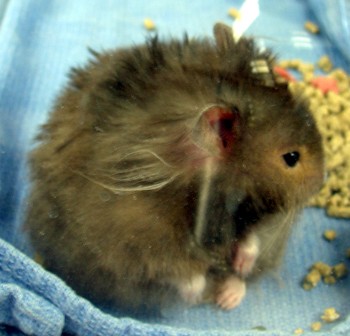
Hamsters are likely the most popular of the small rodents and are available in a variety of sizes, coat colors and lengths. Hamsters do have a reputation for biting, especially when awoken. Always buy young hamsters that have been handled and socialized well. Common problems we see with hamsters are broken limbs (often from wire cages), diarrhea, mites and hormonal disease. All small rodents should be housed on a solid bottom cage because their small feet are easily caught in wire caging and frequently a fracture is the result. Wet tail or diarrhea is a common problem in hamsters and can be fatal if not addressed early. The small hamster will quickly become dehydrated if not treated promptly. Over the counter medications should never be used because they often are dosed inappropriately and may not even treat the actual infection. Your veterinarian will be better able to identify the problem and treat it correctly.
Mites are a common problem in all rodents and infected animals will be itchy and have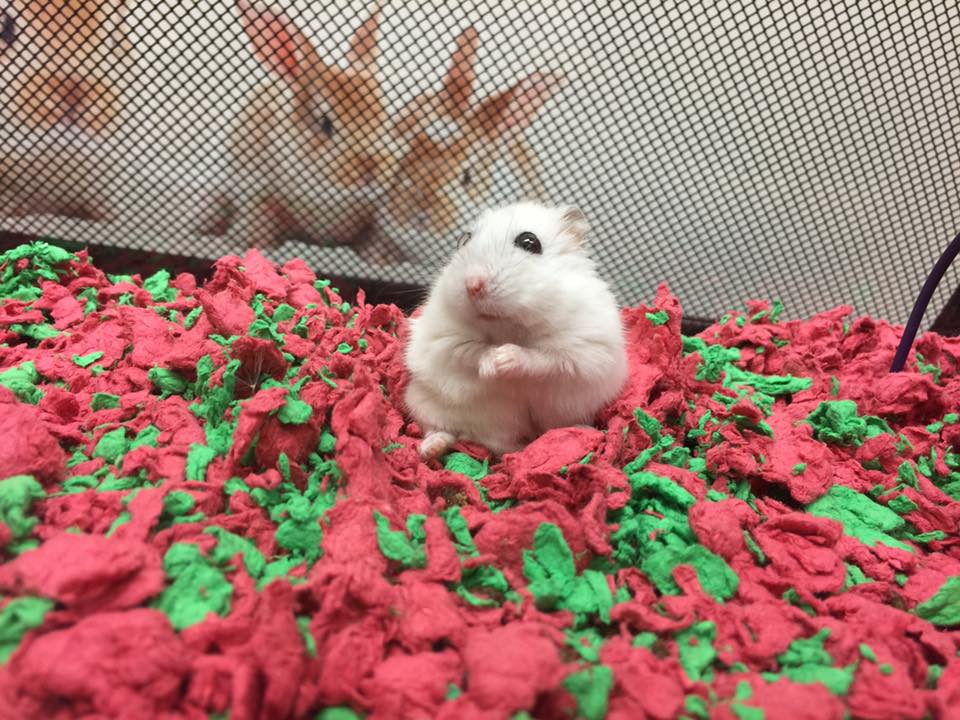 hair loss, skin wounds, and flaky skin. Mites can be treated easily by your veterinarian with a variety of possible treatments. Lastly, older female hamsters can develop a hormonal condition that often looks like a mite infestation. The females will loose hair and are often very itchy. Again, your veterinarian is the best person to diagnose this condition. hair loss, skin wounds, and flaky skin. Mites can be treated easily by your veterinarian with a variety of possible treatments. Lastly, older female hamsters can develop a hormonal condition that often looks like a mite infestation. The females will loose hair and are often very itchy. Again, your veterinarian is the best person to diagnose this condition.
MICE:
Mice have many of the same problems as rats and a similar short lifespan. One problem we see in both rats and mice is tail trauma. If picked up by their tails the skin will actually slip off leaving unprotected tissue and bone. Rodents should therefore never be picked up by their tails. Also, in my experience mite infestations seem to be more common in mice and the affected individual will have hair loss, thickened skin and will be very itchy.
GERBILS:
Gerbils generally make excellent pets and like hamsters they come in a variety of colors and coat textures. I prefer to house gerbils in same sex pairs, but if not already housed together they may fight. Also, overcrowding of gerbils or rodents in general, will result in a variety of health concerns due to stress, such as increased infections and behavioral problems. Gerbils should be purchased at a young age for a reputable breeder that has socialized them well. Tame gerbils will be anxious to be with you and interact with the family. They tend to be fairly healthy animals, but can acquire the same health concerns as other small rodents. Tail trauma is always a problem and again, rodents should never be picked up by their tails. Gerbils have a bare patch of skin on their abdomen that is actually a scent gland. Occasionally the scent gland will develop a tumor that can be surgically removed. Respiratory and gastrointestinal infections can also occur.
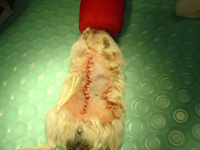 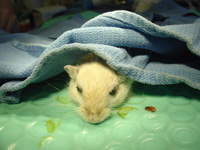
Rabbit & Rodent Dental Anatomy
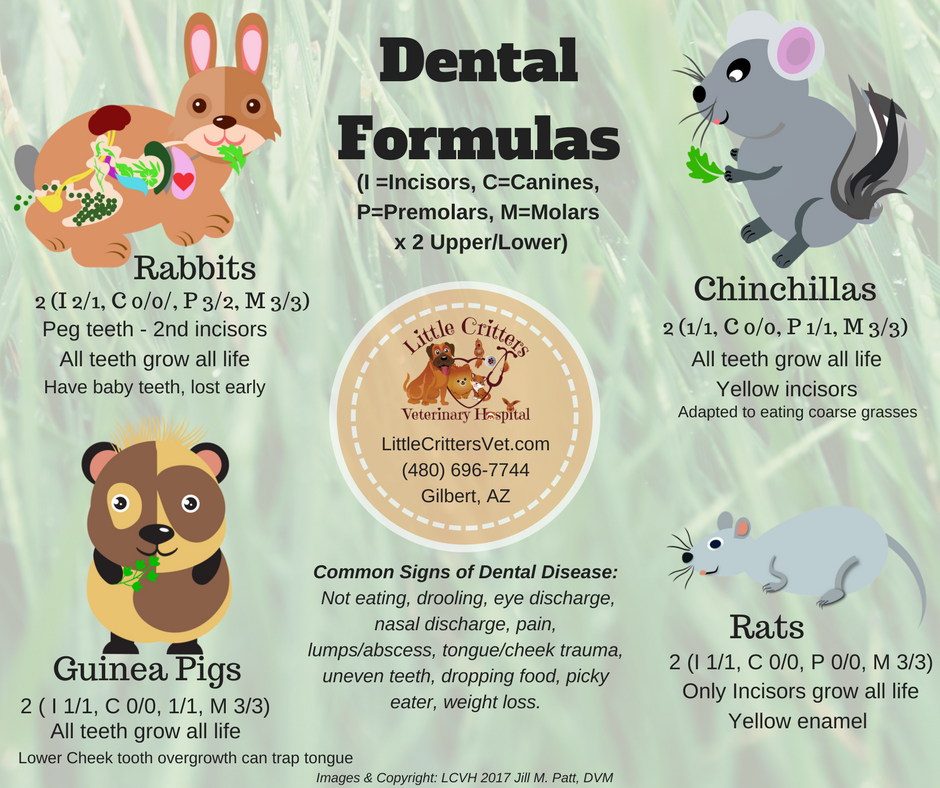
RODENT GENERALIZATIONS/ SUMMARY
- Long tailed rodents are subject to skin slip and should never be picked up by the tail
- Don’t house rodents on wood shavings which can cause allergies. Instead, use recycled paper pellet
- Healthy rodents have yellow teeth. Rodent teeth grow throughout their life and can overgrow resulting in difficulty eating.
- Many rodents have reddish tears and mucus that is often mistaken for blood.
- Never house rodents in cages with wire floors.
- It is best to buy two rodents from the same source at the same time.
- If male and female rodents are kept together the male should be neutered. Neutering of male rodents is a common procedure that will prevent pregnancies and should be available at most exotic veterinarian hospitals.
- Standard rodent chow for your particular species is usually the best food.
- All rodents need room to move and exercise and various toys and wheels should be provided.
- Over crowded rodents or those in too small a cage will become stressed and suffer from many health problems.
RODENT MEDICAL CARE
Many of our clients are excellent rodent owners and will bring their pets in for examination at the first sign of trouble. However, occasionally we will have a new client with a sick rodent and the client will express concern at spending additional monies on a pet that cost only a few dollars to purchase. While it is true that rodents are largely inexpensive, they are often just as good a pet as our more common cats and dogs, and they are no less deserving of medical care. It is our responsibility as pet owners to provide our small family members with a good quality of life and this entails not only feeding and housing, but also treating and curing illness. No animal should be made to suffer based on the monetary value of the pet. Ask yourself if you would not treat a ill dog that had been given to you. Your response for this ill dog should be no different then an ill rodent that requires your aid.
LINKS
EMV: Association of Exotic Mammel Veterinarians: http://aemv.org/
Center for Disease Control – healthy petsa http://www.cdc.gov/healthypets/ Information on infectious diseases that human can acquire from animals. Includes a owner handout on lymphocytic choriomeningitis virus in rodends.
Guinea Pigs
Guinea Pig lynx: http://guinealynx.info/healthycavy.html
CHINCHILLAS
Chinchilla Page – ChinCare http://www.chincare.com/
https://www.facebook.com/groups/chinchillaworld/
MICE, RATS, HAMSTERS, GERBILS
Rats & Mice http://AFRMA.org
http://www.ratfanclub.org/
Rat Facebook Group - https://www.facebook.com/groups/Ratfanclub/
Rat Lovers http://RatLovers.org
Hamsters:
https://hamsters-uk.org/
Gerbils:
http://www.agsgerbils.org/ – American Gerbil Society – EXCELLENT
|